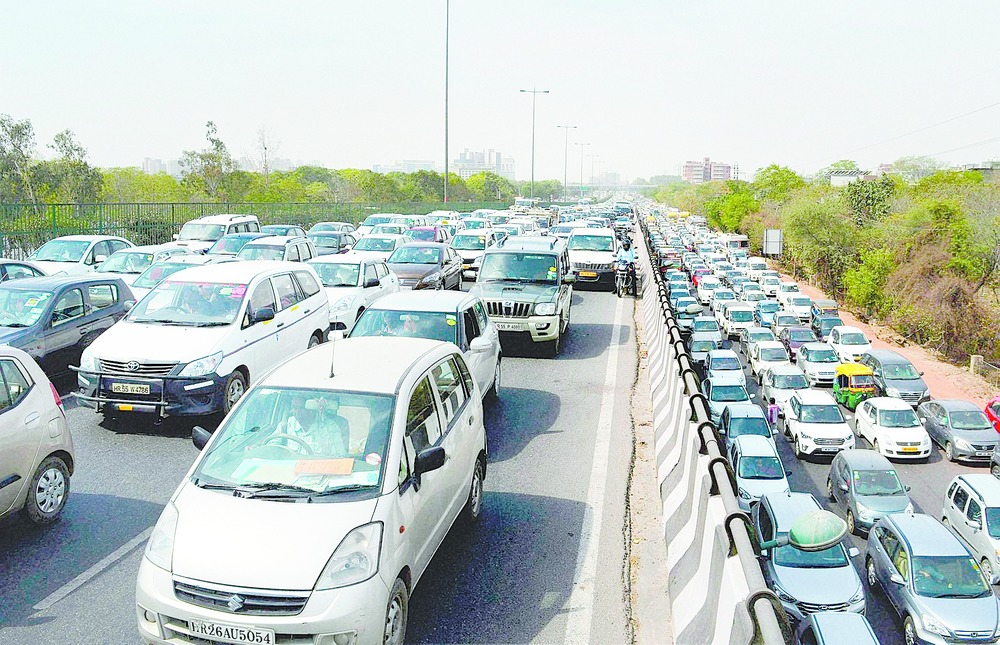
New Delhi, April 13: The Union road ministry is thinking of outsourcing the work of regional transport offices for faster, computer-linked and corruption-free services, which means driving licences could soon be issued by private companies if the plan takes shape.
India has 1,009 RTOs that now issue learners' and driving licences, allot registration numbers to vehicles and document transfer of vehicle ownership.
Officials in the ministry said that while almost everyone who applies have been getting licences from most RTOs, the introduction of computer-based interfaces at two centres - in Pune and Vijayawada - had nearly halved the number of licences issued in the past year.
The idea, sources said, is to install an automated system that would monitor every move you make behind the wheel during a road test. An instructor now takes the test.
Also, if the plan works out, applicants will have to deal with a private company - like Tata Consultancy Services in the case of passport applicants - instead of government babus.
Sources said a rule in the Motor Vehicles Act, 1988, could be introduced in the next few months to pave the way for privatising transport offices.
The Centre had supported the modernisation of the two centres - in Pune and Vijayawada - putting up surveillance cameras, computer-linked testing kiosks and automated driving test tracks by providing an aid of Rs 1 crore for each.
"The results from these centres have been so dramatic that we now want to launch a mega reform initiative throughout the country by operating the units on a public-private-partnership mode," a senior transport division official told The Telegraph .
The ministry has estimated that about Rs 1,010 crore would be required to upgrade all the RTOs in the country.
"Just like passport offices, we plan to invite private vendors who can operate these RTOs. Even though this would mean some increases in service fees, we don't see that as a problem," the official said.
"When people can pay Rs 2,000 to Rs 4,000 to driving schools to learn driving, they would not mind shelling out Rs 2,000 to Rs 2,500 for getting licences."
An official in road transport minister Nitin Gadkari's office said although RTOs are run by state governments, most were in favour of the Union ministry's plan.
"The issue has been discussed several times at bureaucratic and policy-making levels and most states believe that the process of getting a driving licence should be more stringent and automated where less and less human intervention is required," he said. "All they need is financial and technological support and we are willing to provide that."
N. Balasubramanyam, the transport commissioner of Andhra Pradesh who oversaw the upgrade of the RTO in Vijayawada, said governments in most western countries had outsourced running of these centres to private hands. "We managed to clean the mess to a great deal in one RTO in the state but I feel that if private parties come up with technological solutions and take care of the operations, services can be better and transparent."
Gadkari has on several occasions said in public that over two in every five driving licences in the country were bogus and large-scale reforms were needed in the transport sector.
According to a 2014 analysis of road crashes by the ministry, the "fault of the driver" accounted for about 78 per cent of the accidents. Over 1.5 lakh people died in road crashes across the country that year.
Road safety experts sounded caution on the RTO privatisation plan. "It is true that most accidents happen due to the driver's fault and Indian drivers are notorious for their poor knowledge of traffic rules. But the road ministry should first experiment with a privatised RTO before introducing them throughout India," said Harman Sidhu of ArriveSafe Foundation.
"If the concern is handing out licences without following due procedures, merely outsourcing that task to a private vendor will not solve the issue completely. There should be checks and balances."











